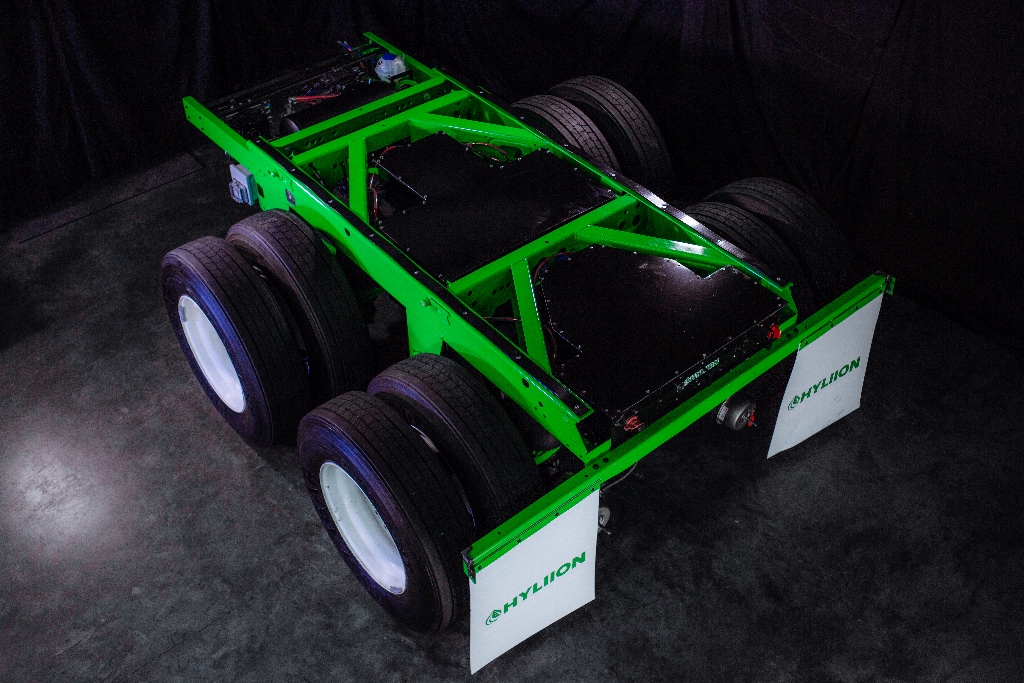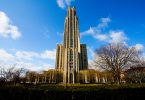A rapidly growing Pittsburgh startup has developed a way to harness the energy produced by large trucks as they brake then reuse that energy to help power the trucks as they travel uphill, reducing fuel consumption up to 30 percent.
Launched in 2015 by mechanical engineer, motorsports racer, and Forbes 30 under 30 winner, Thomas Healy, the Hyliion System evolved out of a passion for horsepower and the desire to bring the advantages of hybrid technology to tractor trailers. Healy’s mission was to minimize fuel costs and lower emissions for long-haul, over-the-road delivery fleets by bringing electric technology to tractor trailers in an add-on solution.

The Hyliion System combines hybrid technology, aerodynamics and Auxiliary Power Unit (APU) functionality. Photo: Hyliion
The Hyliion System combines hybrid technology, aerodynamics, and Auxiliary Power Unit (APU) functionality. When installed on a truck trailer, Hyliion’s intelligent electric drive axle enables the use of regenerative braking to capture power when the vehicle is slowing down, and reuse it upon acceleration. Installation takes only 60 minutes, and energy savings as well as emission reductions are immediate.
The Hyliion System acts as an APU to power the truck cab while the driver is at a rest stop avoiding engine idling. Industry statistics estimate that individual tractor trailers idle for 2,500 hours at rest stops annually — or a little over eight hours a day, 300 days a year. This idling burns about 1.2 gallons of fuel every hour, resulting in 3,000 gallons of diesel fuel (or 13.5% of fuel consumed) being wasted at rest stops each year.
It is estimated that if all compatible trailers use the Hyliion solution CO2 emissions will be reduced by around 150,000,000 metric tons each year in the US.
Hyliion’s patent-pending technology has won accolades from the U.S. Department of Energy (Clean Energy Business Competition), Wells Fargo (Innovation Incubator), Rice University (Business Plan Competition, Shell Technology Ventures and NASA TechBrief Create the Future among others.







